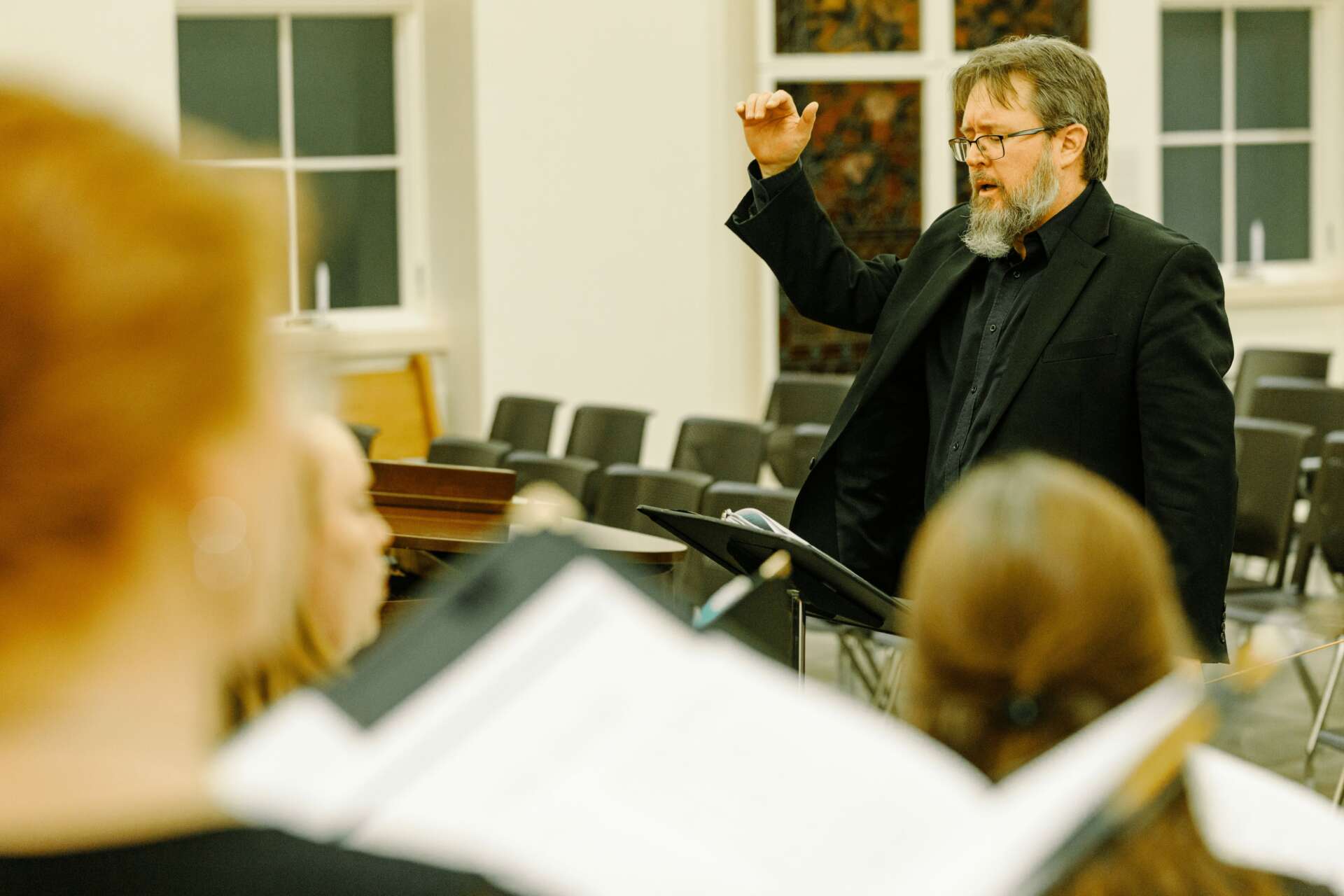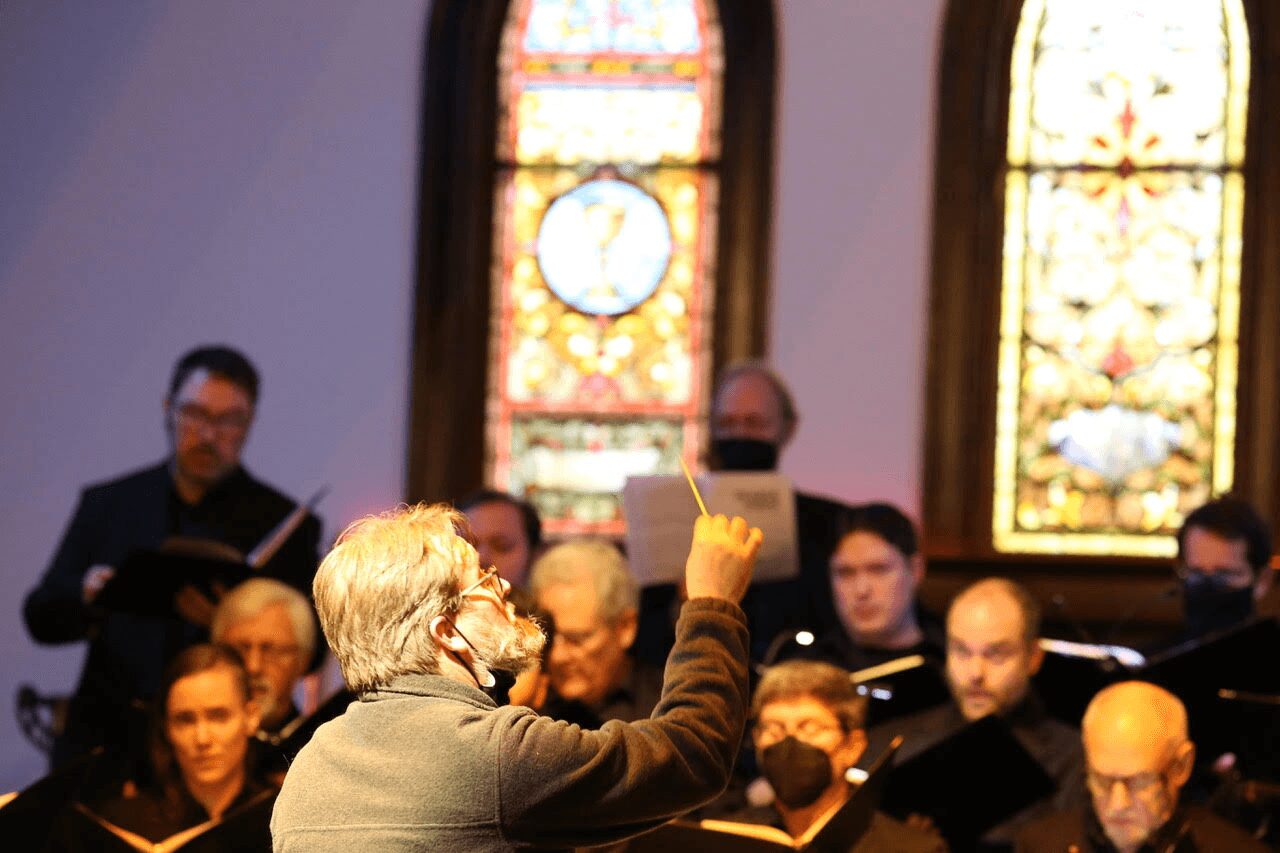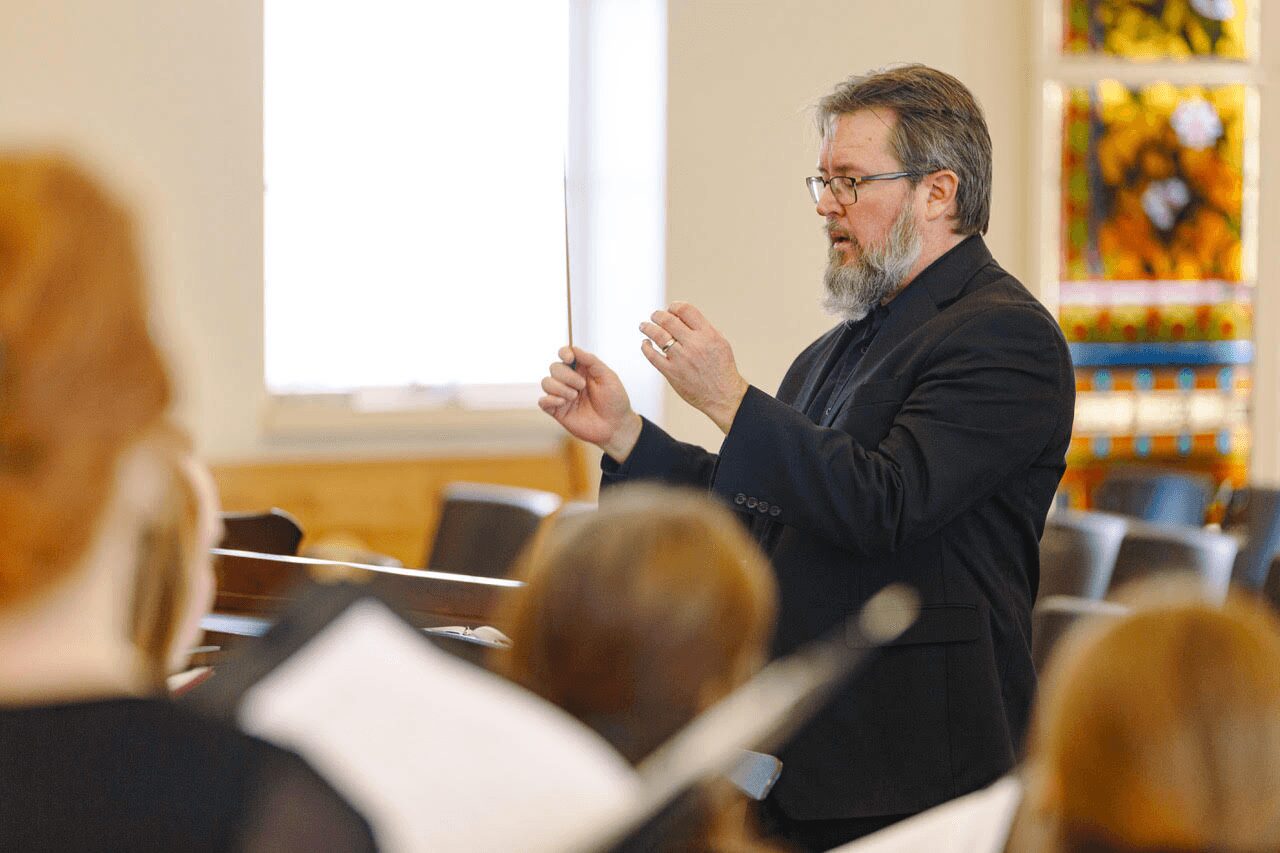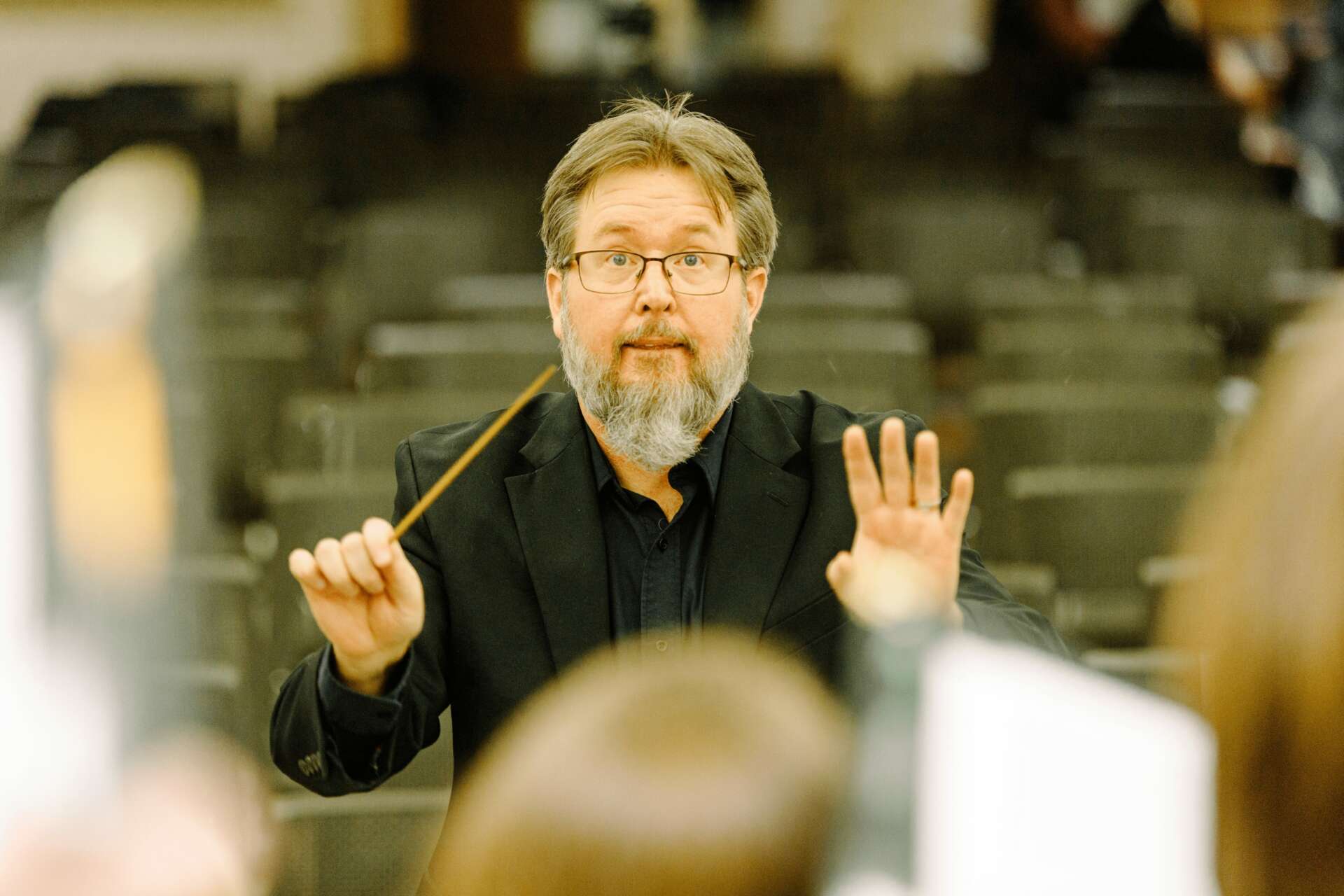We caught up with the brilliant and insightful Virgil Bozeman IV a few weeks ago and have shared our conversation below.
Virgil, thanks for taking the time to share your stories with us today Can you talk to us about how you learned to do what you do?
I sang in choirs starting at age 14. Though I started college as a voice major, I knew from my first collegiate choir rehearsal that I was going to move in the direction of choral conducting. Luckily, I was in a small music program where I could take advantage of a great deal of personalized instruction and conducting opportunities. During my undergraduate years, I was able to take a bunch of independent study courses with the professors who conducted the campus groups. This included the offer to conduct the chamber choir on many occasions. I also sang in a community choir specializing in Jewish choral music to increase my grasp of the choral repertory. After earning my bachelor’s degree, I received a fellowship to study choral music at the University of Illinois, where I received my MM in Choral Conducting.
Despite the years of rigorous training, I realized that I was nowhere near where I wanted to be (skill-wise), and so I took every opportunity to conduct adult groups outside of my day job as a middle/high school choir director. I directed church choirs and non-auditioned community choirs for nearly 20 years before getting the opportunity to start Una Voce Chamber Choir, an auditioned group of 40 singers that specializes in modern and contemporary choral music. By the time this chance arrived, I felt that the countless hours spent leading groups had prepared me to do a good job.
I have a tendency to overvalue my own learning, which can make new learning more difficult and time-consuming. When I arrived at the University of Illinois, the conducting professors told me to be willing to put my previous learning to the side and to start back on the basics. I think if I had been more agreeable to this suggestion, I would have gotten more out of my graduate work in a much shorter period of time. Excepting this shortcoming, I feel as though I got the big things correct. There is no short-cut to mastery, and I have certainly put in the 10,000 hours by this point (thanks Malcolm Gladwell).

Great, appreciate you sharing that with us. Before we ask you to share more of your insights, can you take a moment to introduce yourself and how you got to where you are today to our readers.
I grew up a stones throw from Waikiki Beach, and didn’t start singing until I moved to Maine for high school, but I was quickly hooked. What I do for work is really the only thing I have ever wanted to do, so I feel very fortunate to make a living directing choirs in a small (population), rural place like Maine,
As Director of UVCC, my responsibilities include shaping the artistic direction of the organization through programming and collaboration, as well as the day-to-day tasks of planning/leading rehearsals and consulting our board. We are still young (6 years of operations) and only perform two concert series a year, but we put a LOT of eggs in those baskets.
Even though ticket revenue projections make up a large portion of our annual budget, I tend NOT to think of concert attendees as my primary clients. Instead, my most important clients are the singers in UVCC. They are here (as opposed to in any other of a number of area choirs) for the mission of performing contemporary music; to sing works that they have never sung, and to challenge and broaden their sense of what is beautiful. I often get asked how I think an audience will respond to a given program. I am MUCH more interested in how our singers will respond to that program. I believe that if our singers are challenged and joyous, the audience satisfaction part of it will ultimately follow.
While we are still a young and evolving organization I am most proud of the fact that, despite occasional critiques about programs that are less immediately accessible, our audiences overwhelmingly report that come to our concerts PRECISELY to hear new and challenging music. A lot of folks go to concerts to hear what they know. Our audiences come for what they DON’T know, and I think that this a very exciting space within which to program and perform.

Is there a particular goal or mission driving your creative journey?
Over the years I have come to view the role of music director as being (in some senses) more limited than what I would have imagined coming out of school. I’m not (and never will be) a composer; the true creative in the process in which I’m intimately involved. The most creative I allow myself to be is in the selection and combination of disparate works with the goal of creating a unique and unrepeatable experience for our singers and audience members. This can and should include concerts with musical and emotional arcs that run counter to norms. I want each concert UVCC performs to feel like it exists in its own little universe, with its own physical and gravitational laws. Once a program is developed my role becomes more like that of a mechanic; taking apart a composer’s score, uncovering its intent, and putting it back together again in time for public performance. In short, I try very hard to “disappear” from the process by concert time, leaving only our singers, our audience, and music that is clearly rendered (letting the chips fall where they may). A corollary to this is that I always set a goal of not over-explaining a program to an audience. Everyone is going to come to a concert with their own knowledge, tastes, and prior experiences. I don’t want to inadvertently rob a concert-goer of the opportunity to draw their own conclusions (good or bad).

How can we best help foster a strong, supportive environment for artists and creatives?
I think that society as a whole can tend to view art and performance too much as a product, and not enough as the start of a dialogue. We often project our modern attitudes and sensibilities about what art SHOULD be, and diminish it when it doesn’t conform to these pre-existing outlooks. Then we start getting into areas where a performer (or even worse, a composer) is criticized for what they failed to do, as opposed to what they actually did.
After a recent concert, I read some of the audience feedback we solicited. I always expect criticism, but what stuck with me about these particular points of feedback was that they either implied a relationship of performer and audience as that of merchant and end-user, or that they viewed a plank of our group’s mission through a very narrow lens. Maybe it is a symptom of the world we live in; one where we all have the technological tools to make our opinions heard (I think of that absurdly great South Park episode where Kyle’s dad is a “yelper”), but I think the nature of critique nowadays is such that we can inadvertently supplant our sense of value for the creator’s.
In short, I want very much to hear what you do, but not how you would have done differently what the composer or performer did. I try to live by this guideline when I go to performances or exhibits. I suppose I no longer have the expectation that I’m always going to enjoy and/or appreciate the creative work I support…and I think that’s OK.

Image Credits
Kasey Ivan Photography


